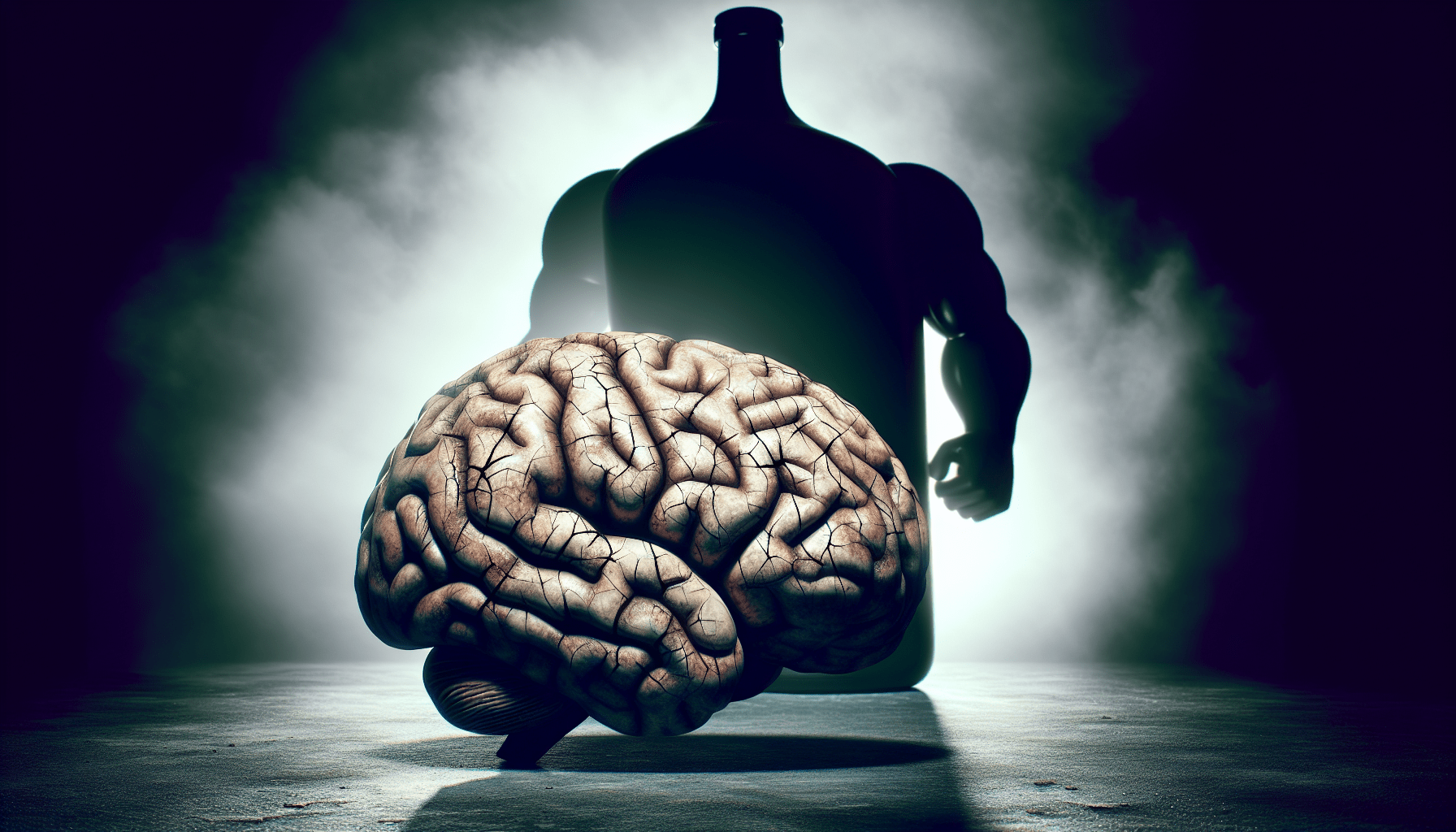Have you ever wondered if alcohol abuse can contribute to cognitive decline? This question has piqued the interest of researchers and healthcare practitioners for decades. Understanding the intricate relationship between alcohol abuse and cognitive health is crucial, especially considering the global prevalence of alcohol consumption and its potential detrimental effects on the brain. In this article, we will take a comprehensive analysis of how alcohol abuse can lead to cognitive decline, exploring various dimensions from scientific studies to real-world implications.
The Link Between Alcohol Abuse and Cognitive Decline
Alcohol abuse and cognitive decline are interlinked through a variety of biological and psychological mechanisms. Chronic heavy drinking can disrupt the normal functioning of the brain, leading to both short-term and long-term cognitive impairments.
What is Alcohol Abuse?
Before diving into how alcohol abuse contributes to cognitive decline, it’s essential to understand what constitutes alcohol abuse. Alcohol abuse occurs when an individual consumes alcohol in a manner that is harmful to themselves or others. This can include chronic heavy drinking, binge drinking, and any other forms of consumption that lead to health and social issues.
Cognitive Decline Defined
Cognitive decline refers to the gradual loss of brain functions like memory, concentration, and decision-making abilities. This can encompass a wide range of conditions, from mild cognitive impairment (MCI) to more severe forms like dementia and Alzheimer's disease.
Biological Mechanisms: How Alcohol Impacts the Brain
The brain is a highly complex organ, and alcohol can affect various parts of it through different biological mechanisms.
Alcohol and Neurotoxicity
Alcohol is a neurotoxin, meaning it can damage or kill nerve cells. Chronic alcohol consumption leads to the generation of free radicals which cause oxidative stress, resulting in cellular damage. Over time, this can result in significant neurodegeneration.
| Mechanism | Impact on Brain |
|---|---|
| Free Radical Generation | Oxidative stress and cellular damage |
| Inflammation | Chronic inflammation in the brain tissues |
| Neurodegeneration | Damage to nerve cells and brain structure |
Impaired Neurogenesis
Neurogenesis is the process by which new neurons are formed in the brain. Alcohol abuse has been shown to impair neurogenesis, leading to a decrease in brain plasticity and the brain's ability to repair and renew itself.
Vitamin Deficiency
Chronic alcoholics often suffer from vitamin deficiencies, particularly thiamine (Vitamin B1). Thiamine deficiency can lead to Wernicke-Korsakoff syndrome, a severe neurological disorder characterized by significant memory problems and cognitive decline.
Short-Term Cognitive Effects
While the long-term effects of alcohol abuse are more commonly known, it’s essential to discuss the immediate impacts as well. Even short-term heavy drinking can temporarily impair brain functions.
Memory Impairments
It's common for people to experience blackouts or brownouts after heavy drinking. These are episodes where individuals cannot remember events that occurred while they were intoxicated. This is due to the disruption of hippocampal function, the part of the brain involved in forming new memories.
Reduced Inhibitions
Alcohol is a central nervous system depressant. It reduces inhibitions and impairs judgment, making individuals more prone to engaging in risky behaviors. This not only has social implications but can further harm cognitive health by exposing individuals to dangerous situations.
Long-Term Cognitive Implications
The long-term cognitive effects of alcohol abuse can be devastating and multifaceted. Long-term exposure to alcohol can lead to a host of chronic cognitive and neurological issues.
Alcohol-Related Dementia
Alcohol-related dementia (ARD) is a severe and irreversible form of cognitive decline directly attributable to chronic alcohol abuse. Unlike Alzheimer's disease, ARD is entirely preventable provided that alcohol consumption is managed.
| Condition | Characteristics | Prevention |
|---|---|---|
| Alcohol-Related Dementia | Severe cognitive decline due to chronic alcohol abuse | Manage alcohol consumption |
Accelerated Aging of the Brain
Chronic alcohol abuse accelerates the aging process of the brain. This means that an alcoholic’s brain may appear to be older than it actually is, exhibiting symptoms commonly associated with old age at a much younger chronological age.
Impact on Mental Health
Long-term alcohol abuse is also closely linked with mental health disorders such as depression and anxiety. Poor mental health further exacerbates cognitive decline, creating a vicious cycle that is difficult to break.
Studies and Research Findings
Numerous studies have explored the relationship between alcohol abuse and cognitive decline, providing compelling evidence to substantiate the harmful effects of excessive alcohol consumption on brain health.
Longitudinal Studies
Longitudinal studies have tracked individuals over several decades to observe the long-term impact of alcohol on cognitive functions. These studies consistently show that individuals who engage in chronic heavy drinking are at a higher risk of developing cognitive impairments later in life.
Epidemiological Evidence
Epidemiological studies provide a broader view, often slicing data across various demographics to observe how alcohol consumption levels correlate with cognitive decline. The general consensus from these studies is that there is a significant correlation between high levels of alcohol consumption and diminished cognitive function.
Neuroimaging Studies
Neuroimaging techniques like MRI and PET scans have been instrumental in showing how alcohol affects brain structures. These studies frequently reveal that chronic alcohol abusers have reduced brain volume, particularly in regions associated with cognitive functions like memory and decision-making.
Real-World Implications
Understanding the link between alcohol abuse and cognitive decline has significant real-world implications, both for individuals and for healthcare systems at large.
Public Health Policies
Governments and healthcare organizations have a crucial role in disseminating information about the harmful effects of alcohol. Preventative measures such as public awareness campaigns and regulating the sale of alcohol can help reduce the prevalence of alcohol abuse.
Early Intervention and Treatment
Early intervention is key to preventing cognitive decline in individuals showing signs of alcohol abuse. Treatment options include counseling, medication, and support groups, all aimed at helping individuals manage their alcohol consumption and mitigate its impact on their cognitive health.
Educational Programs
Educational programs targeting younger populations can be particularly effective. By educating people about the risks of alcohol abuse from a young age, it is possible to reduce the incidence of alcohol-related cognitive decline.
Mitigating Factors
While chronic alcohol abuse has a clear detrimental impact on cognitive health, some factors can mitigate these effects. These can be lifestyle changes or medical interventions that help reduce the risk of cognitive decline.
Healthy Lifestyle Choices
Adopting a healthy lifestyle can greatly mitigate the cognitive decline associated with alcohol abuse. Regular exercise, a balanced diet, and adequate sleep are crucial for maintaining cognitive health.
Medical Interventions
Certain medical treatments can help alleviate some of the cognitive impairments associated with alcohol abuse. These include medications aimed at correcting vitamin deficiencies and therapies targeted at treating oxidative stress and neuroinflammation.
Conclusion
The relationship between alcohol abuse and cognitive decline is complex and multifaceted. While the detrimental effects of chronic alcohol consumption on brain health are well documented, it is also evident that there are various ways to mitigate these effects. Understanding this intricate relationship is crucial for both individuals and healthcare systems globally. By implementing public health policies, early intervention strategies, and educational programs, we can make strides in reducing the impact of alcohol abuse on cognitive health.





